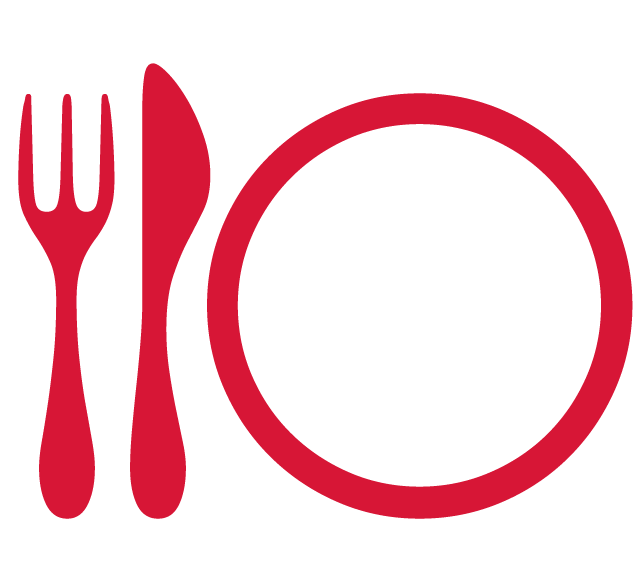
What is Fugu? 5 Tokyo Restaurants
Despite being a luxury fish, fugu cuisine has long been a favorite among everyday Japanese people. The editorial team of OMAKASE, an official Michelin partner, introduces five fugu cuisine restaurants in Tokyo.
What kind of fish is fugu?
A poisonous yet popular fish among the Japanese

Fugu (pufferfish), despite being a luxurious fish, has long been enjoyed by ordinary Japanese people and has become a part of Japanese food culture. The city of Shimonoseki in Yamaguchi Prefecture is famous as the hometown and production center of fugu, handling the largest volume among Japan's markets.
There are about 100 species of fugu worldwide, with 50 species found in waters around Japan. Of these, 22 species are permitted for consumption. The tiger pufferfish, considered the king of fugu, is considered the most expensive and delicious.
Despite its cute appearance, some species contain potent toxins, and the edible parts vary. In Japan, only those with a fugu license can prepare it, ensuring it's safe to eat as a dish.
Fugu cooking methods
Popular fugu dishes include fugu sashimi (tessa) and fugu hot pot (tecchiri).
Fugu sashimi is characterized by paper-thin slices that are nearly transparent. It's typically eaten by dipping it in ponzu sauce (citrus-based sauce) with chopsticks. Adding grated daikon radish as a condiment can provide a nice flavor variation. Fugu hot pot, perfect for winter, is a dish where sliced fugu, bones, and seasonal vegetables are cooked in a kelp-based broth and eaten with ponzu sauce.
Other dishes include grilled fugu, tempura, rice porridge, deep-fried fugu, hirezake (hot sake with a grilled fugu fin), and shirako (fish milt, often from fugu). Shirako is seasonal and only available from around December to April. It's mainly eaten raw, grilled, or in a hot pot. For a full fugu experience, ordering a course meal allows you to taste various dishes prepared using different cooking methods.
Price range for fugu cuisine
Lunch menus for fugu cuisine typically range from 6,000 to 10,000 yen. On average, mid-range restaurants charge around 10,000 yen, while meals at high-end establishments can cost between 10,000 and 80,000 yen. Budget-friendly options are available at some establishments, but they often use species other than the prized tiger pufferfish.
Fugu seasons

Fugu is a quintessential winter delicacy in Japan, with its peak season from autumn to spring. It's also considered delicious just before spawning, from spring to early summer, and in summer, after spawning when nutrients are replenished in its flesh. This makes fugu enjoyable year-round.
Wild-caught fugu is said to be most delicious from November to February with the latter month offering a special treat as the shirako (fish milt, often from fugu) reaches its peak, doubling the enjoyment. For those wanting to experience both fugu and shirako, visiting Japan between December and February is recommended.
Are there fugu restaurants in Tokyo?
While not as numerous as in other areas, Tokyo does have fugu restaurants, including some listed in the Michelin Guide, branches of Michelin three-star restaurants, and long-established restaurants that have preserved traditional flavors. Experiencing fugu cuisine with seasonal ingredients can be a valuable part of your Japan trip.
This article, curated by the editorial team of OMAKASE, the only official Michelin Guide partner in Japan's online gourmet sector, introduces fugu restaurants in Tokyo.
Note: When making a reservation, it's advisable to book not only your seat but also your desired course or dishes for a smoother dining experience.
5 Fugu Restaurants in Tokyo
1. Ningyocho Kimi / Nihonbashi / Ultra-high-end

A branch of the members-only high-end fugu specialty restaurant, Osaka Torafugu no Kai from Osaka, is now open to the public in Ningyocho. The omakase (chef's choice menu, where the chef decides what to serve) course offers the highest grade 5-S wild tiger pufferfish year-round.

The entrance features a heavy door, and the interior has a unique counter seating arrangement around the kitchen, a rarity for fugu restaurants. The omakase course offers creative dishes centered around the finest wild tiger pufferfish, beyond just the standard tessa (thinly sliced fugu sashimi) and tecchiri (fugu hot pot), in a live kitchen setting.
- Operation hours
- 6:00PM - 8:30PM
- Regular holiday
- Wednesdays, Saturdays, Sundays
- Price range
- Dinner: USD 510.53 - USD 510.53
- Address
- Yoshimachi Building B1F, 1-5-5, Ningyocho, Nihonbashi, Chuo-ku, Tokyo
- Nearest station
- Ningyocho Station
- Directions from station
- 1 minute walk from Ningyocho Station
- Payment methods
- Cash and Credit card available
- Total Seats
- 6 Seats
2.Fugu Club miyawaki Bettei / Tsukiji / High-end

This is a renowned restaurant that has been listed in the Michelin Guide for three consecutive years. Fugu Club miyawaki Bettei is housed in a traditional Japanese building from 1927 in Tsukiji, offering a leisurely dining experience with high-quality fugu prepared in various ways. The restaurant only offers the Bettei omakase (chef's choice menu, where the chef decides what to serve) course, featuring premium fugu along with seasonal ingredients. Unlike the main branch mentioned below, this Tsukiji location focuses solely on the Bettei omakase course, combining top-quality fugu with seasonal delicacies.

- Operation hours
- Monday to Saturday
5:00PM-11:00PM (L.O. 10:30PM)
Sundays and Public Holidays
5:00PM-10:00PM (L.O. 9:30PM) - Price range
- Dinner: USD 127.9 - USD 183.31
- Address
- 6-7-7, Tsukiji , Chuo-ku, Tokyo
- Nearest station
- Tsukiji station
- Directions from station
- 3 minutes walk from Tsukiji Station
- Payment methods
- Cash, Credit card available
- Total Seats
- 30 Seats
- Awards
-
Michelin

-
eason Lin5.0Posted on :10/28/2025
-
Roland5.0Posted on :04/27/2025
-
Michael4.8Posted on :11/24/2024
3.Fugu Club miyawaki / Ginza / Mid-range

Located in Ginza, Fugu Club miyawaki offers fugu dishes similar to its Bettei counterpart. They use farmed fugu raised with superior Japanese techniques as high-quality ingredients, offering them at reasonable prices. The restaurant offers only an omakase (chef's choice menu, where the chef decides what to serve) course, but à la carte options like tessa (thinly sliced fugu sashimi), tecchiri (fugu hot pot), grilled fugu, and deep-fried fugu are available at more affordable prices than at Bettei. The omakase course is suitable for various occasions, and there's an extensive sake menu.

- Operation hours
- [1-2 people]
5:00PM-11:00PM (Available all day.)
[3-6 people]
①5:00PM-8:00PM (2 hours)
②8:30PM-11:00PM (2 hours) - Regular holiday
- Open year-round
- Price range
- Dinner: USD 76.74 - USD 76.74
- Address
- 1-22-12, Ginza , Chuo-ku, Tokyo
- Nearest station
- Ginza Station, Higashiginza Station, Shintomicho Station
- Directions from station
- 6 minutes walk from Ginza Station
5 minutes walk from Higashiginza Station
2 minutes walk from Shintomicho Station - Payment methods
- Cash, Credit card available
- Total Seats
- 26 Seats
-
Glenn Bersabe5.0Posted on :10/03/2024
-
Farshid ajvan4.5Posted on :07/06/2024
-
Charles5.0Posted on :04/30/2024
4.Nakameguro Yakifugu Yumeteppou / Nakameguro / High-end
A fugu restaurant branch of Yakifugu Yumeteppou, beloved in Osaka for over 30 years, is now in Tokyo's Meguro district. Known as a pioneer of grilled fugu, Yumeteppou's specialty allows you to enjoy firm tiger pufferfish grilled like yakiniku (Japanese BBQ).
They offer four course options: Yume, Ren, Yu, and Mai. À la carte menu includes tecchiri (fugu hot pot), seasonal shirako (fish milt, often from fugu), and other creative dishes. They take pride in their ingredients, including house-made ponzu sauce (citrus-based sauce) that pairs perfectly with fugu. A dedicated sommelier selects wines to complement fugu dishes, creating a memorable Japanese culinary experience.
The sophisticated interior includes counter seats, tables, sofa seating, and private rooms, making the venue suitable for various occasions.
- Operation hours
- Weekdays 5:00 p.m. - 9:30 p.m. (L.O. 10:00 p.m.)
Weekends and holidays 4:30 p.m. - 9:00 p.m. (L.O. 9:30 p.m.) - Regular holiday
- Wednesday
- Price range
- JPY9,900 - JPY33,000
- Address
- Granduo Nakameguro B1F, 1-25-13, Aobadai, Meguro-ku, Tokyo
- Nearest station
- A few minutes walk from Nakameguro Station
- Directions from station
- Nakameguro Station
- Payment methods
- Cash, Credit card
- Total Seats
- 32 seats
5.Usuki Fugu Yamadaya Marunouchi / Tokyo Station / High-end
- MICHELIN (2009,10, 2020 - 23): Two Star
- MICHELIN (2011 - 19): Three Star
The Nishi-Azabu branch of Usuki Fugu Yamadaya held three Michelin stars for nine consecutive years. The original restaurant, a long-established fugu ryotei (traditional Japanese restaurant) founded in 1905, is located in Usuki City (a city in Oita Prefecture, known for fugu). While the Nishi-Azabu branch is currently closed, the Marunouchi branch remains open.
They offer course meals, à la carte options, and lunch menus during the day. Carrying on the flavors and pride of a long-established ryotei into modern times, every aspect from taste to tableware and ambiance reflects Yamadaya's commitment to tradition, creating a memorable dining experience.
- Operation hours
- Monday to Saturday: 11:30 a.m. - 3:00 p.m. (L.O. 2:00 p.m.), 5:30 p.m. - 11:00 p.m. (L.O. 9:00 p.m.)
Sunday & Holidays: 11:30 a.m. - 3:00 p.m. (L.O. 2:00 p.m.), 5:00 p.m. - 10:00 p.m. (L.O. 9:00 p.m.) - Regular holiday
- Open all year round (except January 1st and legal inspection days)
*The restaurant may be temporarily open or temporarily closed. - Price range
-
Lunch: JPY8,000 - JPY9,999
Dinner: JPY20,000 - JPY29,999 - Address
- 35F, Marunouchi Building, 2-4-1 Marunouchi, Chiyoda-ku, Tokyo
- Nearest station
- Tokyo Station,Nijubashimae Station
- Directions from station
- 1-minute walk from Tokyo Station
5-minute walk from Nijubashimae Station (Chiyoda Line)
216m from Nijubashimae Station - Payment methods
- Credit card, Electronic money, QR code payment (PayPay, d払い, Rakuten Pay, au PAY)
- Total Seats
- 34 seats (Counter 6 seats, 6 private rooms)

.jpg)